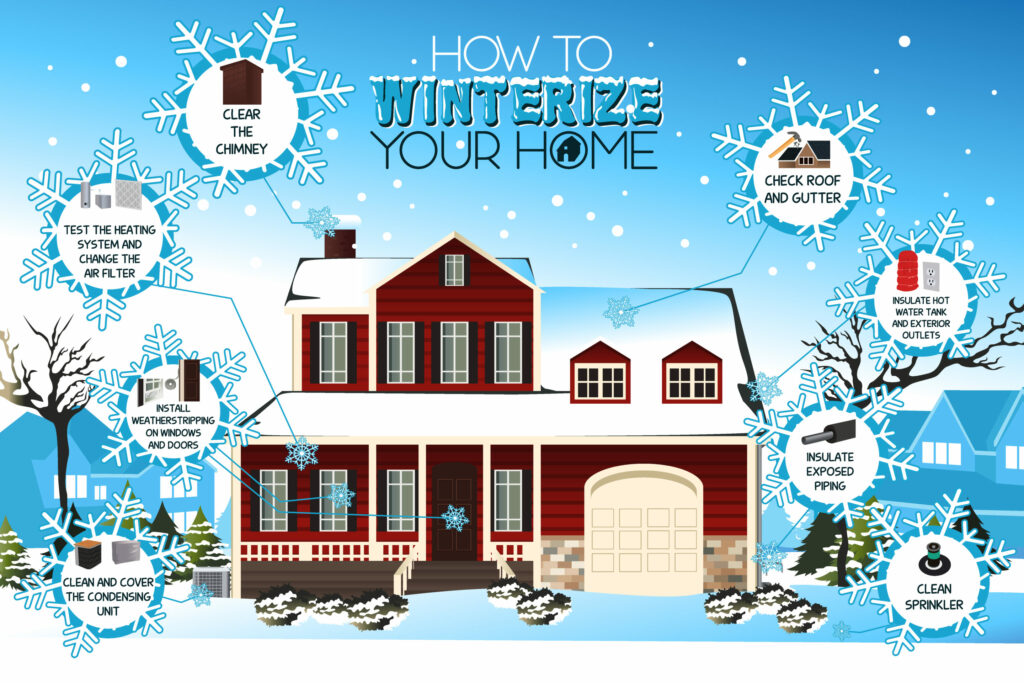Winterizing your home is a pro-active way to protect your home from potential damage winter weather can cause due to unforgiving storms and freezing temperatures. Not only can these issues be inconvenient and costly – they can be dangerous.
CLEAN OUT YOUR GUTTERS: Clogged gutters with leaves and debris that cannot drain can lead to water damage by flowing into your foundation, siding, walls, and ceilings. Coverage for this type of water damage is not typically covered by your Homeowner’s insurance.
CHECK YOUR HEATING SYSTEM: Clean the area around the unit and clean the outside coils with a mild detergent. If you suspect any issues, have your heating system professionally serviced. Replace your air filters to keep it running like a champ during the season change.
TRIM DEAD TREE LIMBS: High winds or the weight of snow and ice can cause large tree branches or entire trees to fall on your home. This could result in significant damage to your roof, deck, or windows, or end up with a tree lying in your yard. While your homeowner’s policy will cover if a live tree falls on your home, it typically will not cover if a dead tree falls.
REPAIR YOUR ROOF: Repair any roof damage, leaks, or holes. Snow is heavy, and when it melts, that water will have to go somewhere. Snow ice buildup on your roof can cause major problems, such as snowmelt seeping into your roof, walls, and ceilings, or the less likely incident, though still possible, an actual roof collapse.
COVER AND WINTERIZE YOUR POOL: Not only will this help extend the life of your pool, but it will also keep your family safe. Deep clean the pool, check and balance PH and alkalinity levels, shock your pool, add winterizing treatment, lower the water level, remove pool accessories, drain pool pump, winterize pool plumbing, and cover the pool for the winter.
MAINTAIN YOUR FIREPLACE: Clean your fireplace weekly to reduce ash buildup and get your chimney and fireplace professionally inspected. Never restrict air supply by closing the glass doors, failing to open the damper enough, or burning unseasoned wood. Always use a fireplace screen.
WINTERIZE YOUR PIPES: If your interior pipes are vulnerable to freezing, when water freezes and expands, it could end up bursting your pipes. This could lead to water leaking, spraying, or even flooding into your home. You could end up with damage to your personal property and/or end up with structural damage to your home. Insulate the pipes, seal air leaks, and use heat tapes to help prevent burst pipes.
Winterizing your home isn’t hard, but you want to make sure to winterize your home properly. Just stay pro-active and be aware of the insurance implications if something does go wrong.
We are here to help guide you and answer any concerning questions you may have with the upcoming winter season.


